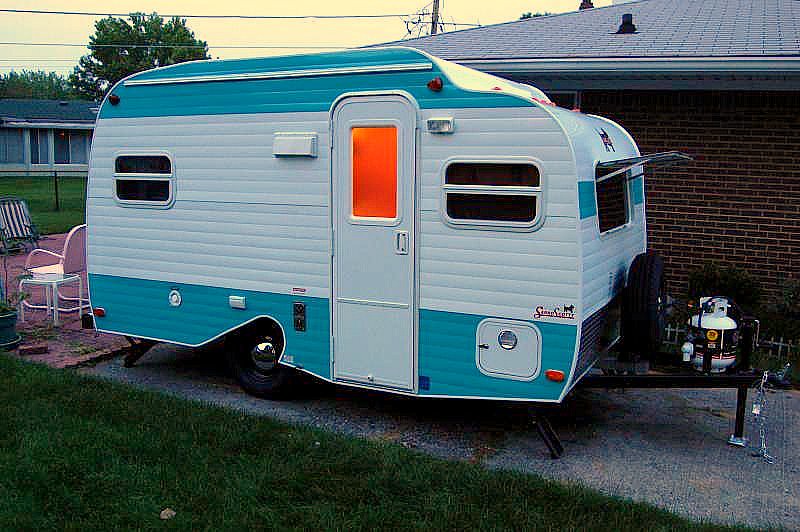Thanks, all, for the great responses and questions!
MtnDon wrote:The thing the PD4045 provides that is nice is the breakers (AC) and fuses (DC). As well it is a charger and is used to supply DC when connected to a campground power system.
An aside... how many batteries and what type are you planning on? And are you planning on using the full capacity of those 2000 watt inverter / chargers? To pull 2000 watts of AC from a 12 volt battery system needs something like 450 amp hours minimum IMO. With too small of an amp hour capacity 12 volt lead acid batteries suffer from severe voltage drop. What AC devices do you plan on using?
Hey, Don. You've already been a huge help (I got a lot of great ideas from seeing your 6x12 build). I was planning on running two 6V golf cart batteries in series at the start. Because I expect this build to start small and grow (and I haven’t fully decided what the final state is going to be yet), my power needs aren’t as well defined as they should be, but here’s what I’m guessing I’ll be running at the end:
On AC:
1) About a 19” TV with built-in DVD player
2) Laptop computer
3) Small Refrigerator
4) Hair drier (obviously not mine, lol...but a big reason for the large inverter)
5) Possibly a toaster or toaster oven (we don't really use a microwave for anything)
On DC
1) Stereo
2) Water pump
3) Interior and exterior lights
I can get my lovely bride to live without an indoor shower, but living without a hair dryer? I'd rather attempt it

MtnDon wrote:Personally, I really like a quality inverter / charger; Magnum, Outback, some Xantrex are the ones that come to mind. The chargers built into those are among the very highest quality.
Question for you... will your use be mainly dry camping, no camprground hookups? An inverter / charger makes best sense to me in boondocking use. Add a quality fuse box for the DC circuits. Bluesea has some. Midnite Solar has some very good breakers for DC. Plus install a small AC breaker set for the AC side.
Yes, the trailer will be used almost exclusively for boondocking. I don’t ever plan on using it in a campground or RV park, but there's always that possibility. I had planned on adding fuses for DC, but I didn’t really considered breakers. I’ll look into it. Yeah, those Magnum inverter/chargers are lovely...but ouch. It hurts my wallet just to look at them. Of course, I haven't heard anything but positive comments about the quality. I'd rather have something reliable, at the end of the day.
flboy wrote:The Converters usually also charge the battery. That is the main purpose of having it if you have batteries. I have not seen an Inverter that charges a battery. If it does, it is wasting power converting DC to AC to convert back to DC to charge the battery? That would be strange?
Yeah, the inverters in my OP also have quality battery chargers built-in and can switch between providing AC power from shore/generator to battery-powered AC, depending on if AC power is available coming into the system. Unfortunately, any time we charge batteries from AC then use AC devices later, we lose efficiency with converting from AC to DC, then DC back to AC, whether we use a converter or inverter to charge the batteries.
Since I know I can charge batteries from an inverter, the question was more about why do I need a converter? Since I won’t be using shore power or anything other than my battery system to run DC, what exactly is the converter going to do for me?
Maybe I’m looking at it all wrong, though. Maybe it’s better (cheaper?) to use a converter with built-in charger to take care of my batteries. Then I can get a inverter without a charger built-in and lower the total cost.







